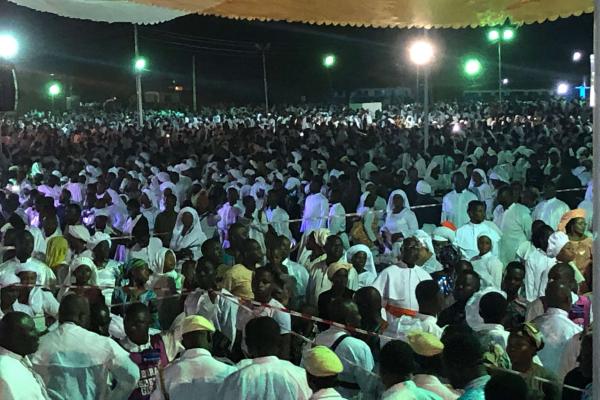Aug 28, 2019
One year ago this week, I walked into the Cathedral in Santiago de Compostela, Spain, completing my pilgrimage there. This week I witnessed a different pilgrimage as about 100,000 people made their way to Mount Tabieorar, in Ogere Remo, Nigeria. They clothed themselves with white robes, took off their shoes, danced, sang, and prayed through the night and into the early morning with uninhibited joy. This was the 83rd time the Tabieorar celebration has gathered in this holy space.
Read the Full Article

Already a subscriber? Login
